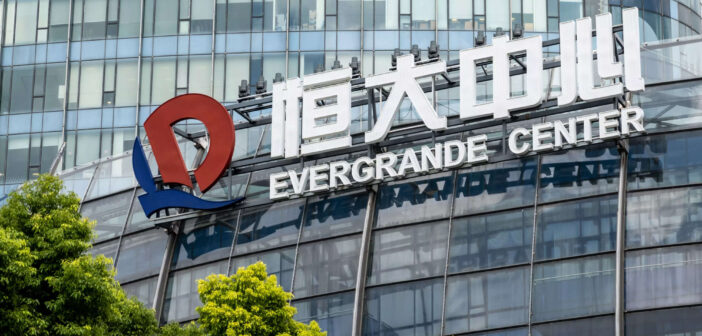It is the story of a debt ridden real estate company that is financially overleveraged; gone beyond execution capabilities; has multi-city penetration; is into multiple businesses; and the promoters are just delaying the inevitable. The developer that you instantly recall is China’s Evergrande. It’s the talk of the town across the built environment of global real estate today. But wait! Has India not been witness to its own Evergrande moment (though on a smaller scale) in the past? Track2Realty speaks to cross section of industry analysts.
Evergrande is big; big enough to destabilise the Chinese economy and make the global economy feel the heat. It is hence being referred to as the Lehman moment of China. But in the Indian context too, though not that big to affect the economy at large, there have been instances more than one where the same recipe of disaster has been served by the reckless developers. Be it Unitech, Jaypee, Amrapali, or HDIL – the Evergrande model of unsustainable aspirations have been more or less the same.
This raises a fundamental question as to whether there is any learning for the Indian real estate from Evergrande imbroglio. Equally true is to analyze whether there is any potential disruption out of the imminent failure of Evergrande. This also raises a few question marks over the regulatory checks & balances to deleverage the large developers whose ambitions far exceed their business capabilities.
Evergrande learnings for India
Fiscal closure of project more important than expansion aspirations
Growth beyond execution capabilities is recipe of disaster
Multi-city large format projects could also mean over-leveraged market penetration
Multiple business interests at the cost of timely delivery is a red flag
Home buyers must stay away from realty brands that are thinly spreading across the cities without timely delivery and high C-SAT score
Evergrande potential shocks in India
Evergrande collapse could hurt the supply chains most
Many of the suppliers are also exporters to the Indian developers
Steel, tiles, sanitaryware, electrical items could be costlier for India
Regulatory learnings from Evergrande
Deleveraging the fast moving real estate business is as important as leveraging
Regulators must take preemptive measures and not wait for a large developer to default
Stringent checks & balances needed where business cycle revolved around public deposit
Industry voices
It is early to assess as to what extent this episode would impact the Indian real estate market and its supply chain. Industry reaction in India is hence guarded with caution at the moment. Subhankar Mitra, Managing Director – Valuation and Advisory Services, Colliers India believes it is important that developers should avoid taking a speculative position; rely on the actual end-user demand; continue to focus on corporate governance; and continue to lower their debt levels. Top 10 listed developers in India cut their debt levels by 37% between March 2020-June 2021. This is a good sign. To deleverage further, developers can look at a combination of asset sales, raising equity and enter development partnerships.
“Developers should be prudent in expansion, and conduct an essential market assessment before entering new geography. Diversification is important, but focus on core business is essential; launching projects should be in sync with the demand. Most grade A Indian developers have considered entering newer geographies after careful evaluation and market assessment. There are developers who have entered other regions in India but have mostly gone with a partnership model involving a local player and have been able to mitigate many risks,” says Mitra.
Aditya Kushwaha, CEO & Director at Axis Ecorp admits that while it is only now that we have got to know about China’s Evergrande Group, but the trouble may have been brewing in the company for a while. From what we know from the media reports, it seems that Evergrande is likely to default on liabilities including interest payments and debt obligations. One level of impact has already been absorbed by the supply chain players.
“Stocks of several top commodity companies took a hit for a few trading sessions. Thankfully, the impact was not far bearing for the Indian companies and the stock prices have started to stabilise. However, these companies may continue to face exposure if Evergrande collapses. It is hard to draw a ballpark figure on their exposure levels but we can be certain that the worst is now behind us,” says Kushwaha.
Aditya Kedia, Managing Director – Transcon Developers says the majority of the real estate developers across the world use lending to finance their projects at multiple levels such as land acquisition, construction finance, and sales. With a strong balance sheet, smart moves, and sound fundamentals, leverage can be a tool to magnify profits. But at the same time, it can also become detrimental for the developers if they have over-leveraged market penetration. If any organisation in any industry is in such circumstances, it is bound to suffer.
“Being the second-largest real estate developer in China, the Evergrande group, is the reason behind the Chinese real estate boom. Therefore, this crisis cannot be an example to the developers who are thinly spread across the cities. Every successful company wants to grow further and add to the overall prosperity of the country. In India, for instance, several prominent developers have spread their roots across multiple cities and have successfully managed to gain trust from people over the years,” says Kedia.
The parallels
Very much like some of the large real estate companies that failed in India, it was perceived that Evergrande was too big to fail. However, if there is any learning, it is that no company ever is too big to fail. Moreover, in the case of Evergrande, it was not just its strategies and inefficiencies that are being cited as the reason for its downfall. This incident has exposed the cracks that may have existed in the overall real estate eco system for a while now.
Analysts tracking both the Indian and Chinese real estate market believe it is always advisable for homebuyers to do their due diligence before investing in a costly product like real estate which operates on Sell & Build Model. Evergrande has only reminded the Indian home buyers about their experiences back home with some of the over-leveraged developers where the Supreme Court intervention along with the government-backed stress fund was needed to bail out the buyers.
Any slowdown in the Chinese economy due to Evergrande failure and devaluation of Yuan could spell short-term troubles for the Indian developers relying on Chinese imports of raw materials. But what Evergrande has definitely done is to remind the Indian home buyers that over-leveraged and thinly spread big brands with execution uncertainty are to be avoided.
Ravi Sinha
RaviTrack2Media
Track2Realty is an independent media group managed by a consortium of journalists. Starting as the first e-newspaper in the Indian real estate sector in 2011, the group has today evolved as a think-tank on the sector with specialized research reports and rating & ranking. We are editorially independent and free from commercial bias and/or influenced by investors or shareholders. Our editorial team has no clash of interest in practicing high quality journalism that is free, frank & fearless.
Subscribe our YouTube Channel @ https://bit.ly/2tDugGl





